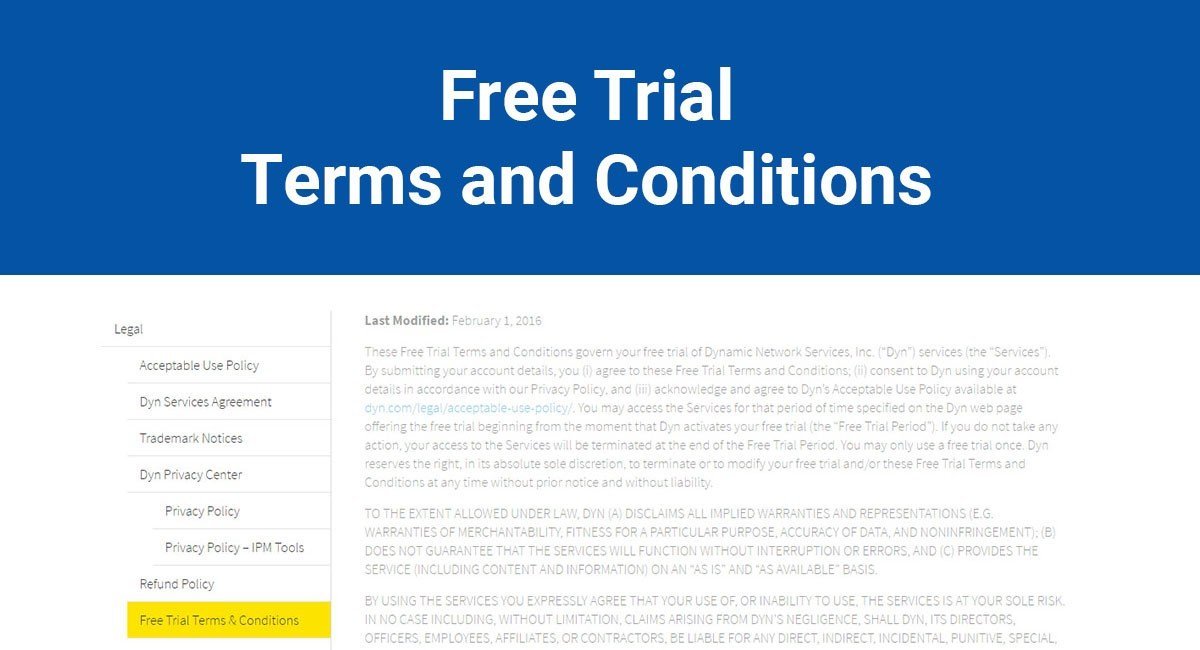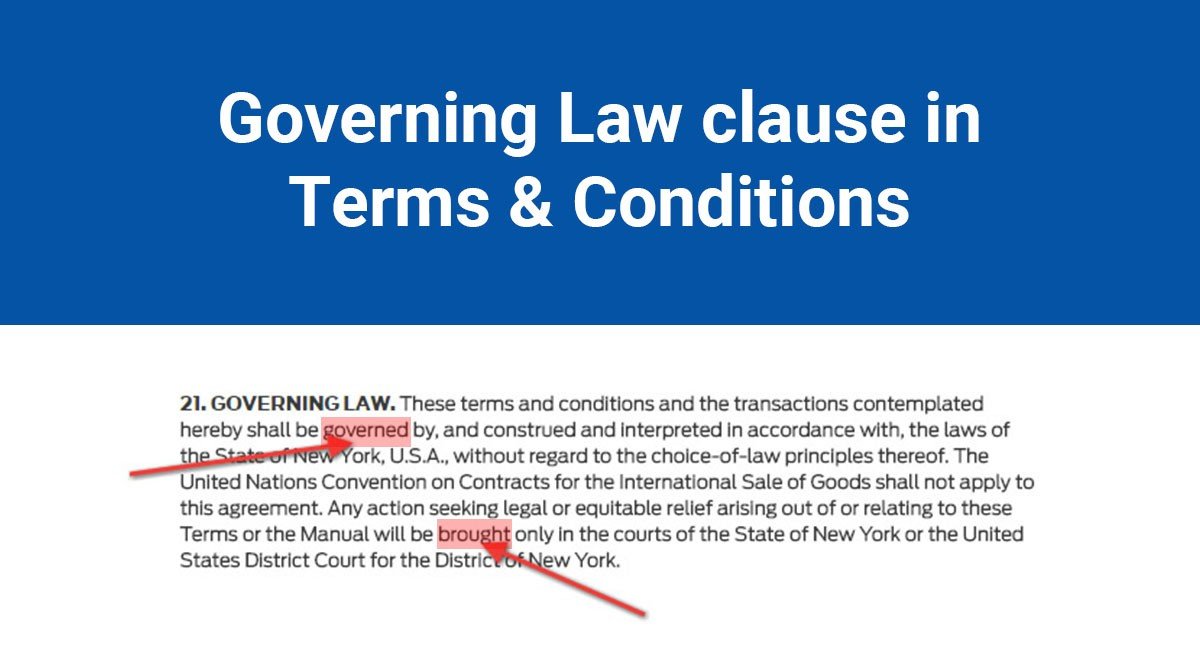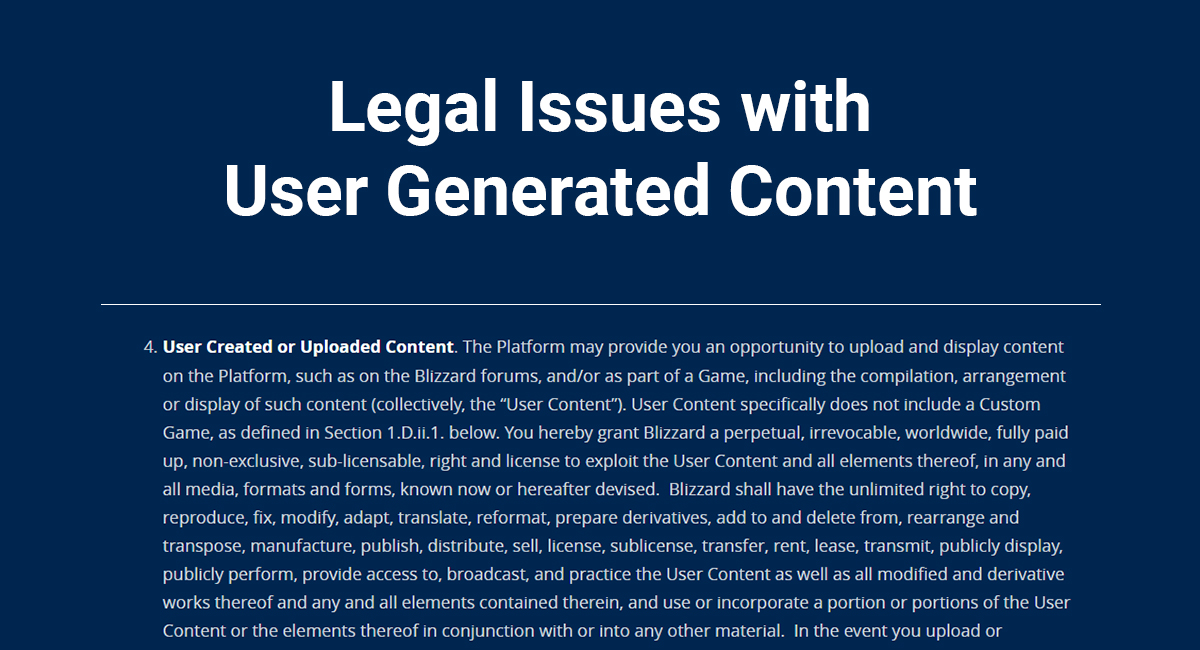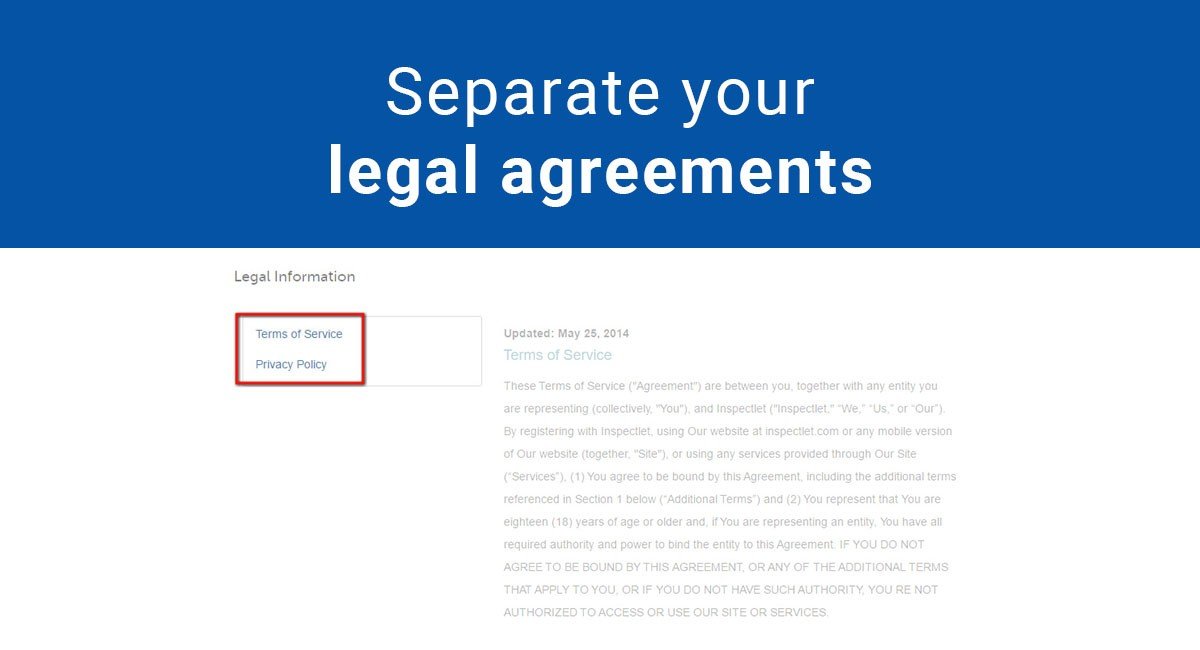If you give users a free trial of your app, it isn't a free-for-all.
Even though users won't be paying just yet, you'll still need to include Terms and Conditions for the free trial, or at least address the "free trial" terms in your overall Terms and Conditions agreement.
There are two main reasons for this.
First, you need to be able to govern the use of your app during the free trial.
Just because a user isn't paying during the free trial that doesn't mean the user can use the app differently than paid users.
You'll still want all of your disclaimers of warranties, restricted uses, copyright and intellectual property clauses and other terms to apply during the free trial. In other words, you'll want your Terms and Conditions to apply.

Secondly, your Terms and Conditions is where you'll include information about what happens when the free trial period ends.
Topics like billing after the trial, how to cancel before the trial ends, how long the trial lasts and other important clauses need to be addressed, and your Terms and Conditions is the place to do this.
The only thing that's different here from apps that do not offer a free trial is that if you do offer a free trial, you need to inform users:
- When the free trial period ends, and
- What happens then
Let your users know how long a trial lasts (i.e. 30 days, 2 weeks, etc.), as well as how billing will occur after the trial (i.e. a user gets charged immediately the day after the trial, gets an invoice a month later, etc.).
Separate or combined terms

Businesses are split on how to handle the Terms and Conditions for a "Free Trial".
Some businesses have one overarching Terms and Conditions agreement where they include information and terms relating to the free trial.
Others include a completely separate free trial Terms and Conditions. Usually this separate agreement - the "Free Trial Agreement" - will reference the main Terms and Conditions agreement so that all of the same clauses found there will apply during and after the free trial.
Common clauses found in terms for Free Trial

The following topics are commonly found as clauses or sections of clauses in Terms and Conditions where "Free Trials" are covered:
- How long a trial lasts: 14 days, 30 days, etc.
- What happens when a trial ends: Is an account automatically deleted and all data lost? Is a user immediately billed?
- How to cancel the trial before it ends automatically: Include a link to a cancellation page if applicable, and include any timelines, like if a user must cancel 3 days before the end of the trial.
- Reference to the full Terms and Conditions: Remember, you still want these full Terms to apply to your users during their free trial periods.
- Anything else that you want a user to know about: Are there any regional or other restrictions to free trials? Are they only for European users, or only for new customers?
Here are a few examples of how popular businesses that offer free trials handle the Terms and Conditions agreement.

Web Wiz offers a free trial for its hosting service and has a separate "Free Trial Hosting Terms and Conditions" page that has only eleven individual terms. However, one of these terms states that the full "Web Wiz General Terms and Conditions" applies to the free trial.
Web Wiz users are informed that a free trial lasts for 14 days and that after those 14 days, the regular price for the hosting service will be charged.
Users are also informed that a credit card is required when signing up for the free trial and that the free trial must be canceled 3 working days before the trial ends if a user wishes to not be charged for service at the end of the trial period:
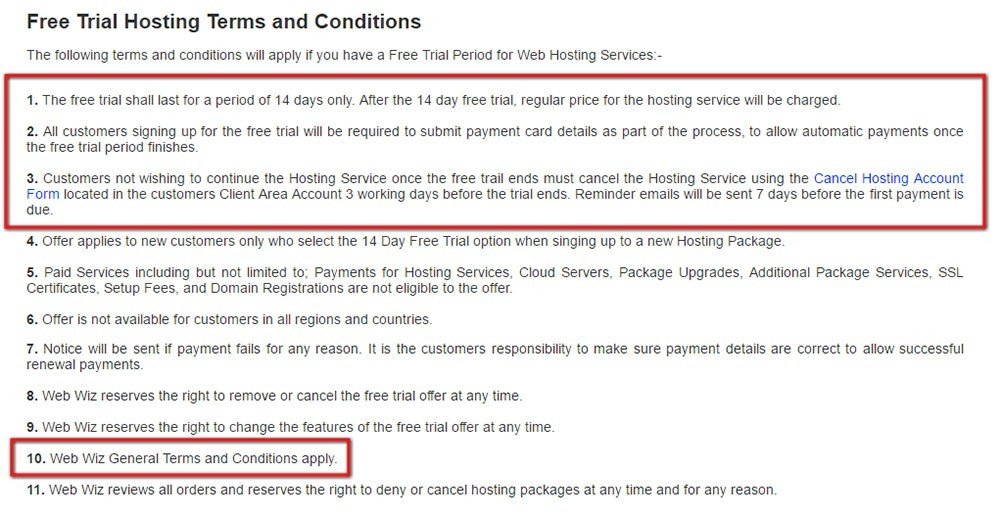
LinkedIn also has a separate Free Trial Terms and Conditions that's basically just one short paragraph.
The "Free Trial Terms and Conditions" of LinkedIn includes a link to the LinkedIn Terms of Use agreement and bounds users of the free trial to these main terms as well as the trial terms:

Within this paragraph, a user can find out that a free trial lasts for 30 days, and what happens at the end of those 30 days. Users are informed that some features they use during the free trial will be removed and data deleted if they don't sign up for a premium account before the trial ends.
Nothing about payments or needing a payment method to sign up for the trial is discussed, so a user will know that she won't be automatically charged anything at the end of the trial nor need to enter any financial information to take advantage of the trial.

Dynamic Network Services has a Free Trial Terms and Conditions agreement that also doesn't have to address payment issues, but does still include disclaimers of warranties and limitations on liability:
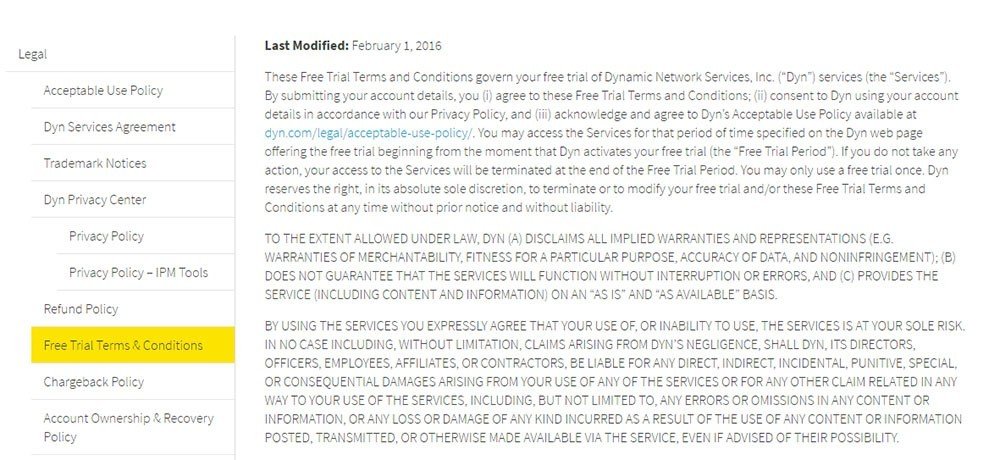
A reference to the full Acceptable Use Policy agreement is included and users are informed that they're agreeing to that policy by using the free trial.

Here's how Spotify adds a separate Free Trial Terms and Conditions agreement to its app:

This short paragraph from Spotify lets users know how long their free trial will last, that they'll be charged unless they cancel before the end of the trial, and that Spotify's general Terms and Conditions agreement also apply here.
Now let's look at businesses that don't have a separate Terms and Conditions for their free trials, but rather include information about the free trial directly within their one main Terms and Conditions agreement.

Zendesk has one place where its Terms can be found: a "Master Subscription Agreement" page.
The 2nd paragraph lets users know that this single agreement governs use and access of the service "whether in connection with a paid or free trial subscription to the services.":

The details of the "Free Trial" for Zendesk can be found in an another clause where users are informed that they may lose data created during a free trial if they don't purchase a subscription after the trial ends or export their data.
Users are also informed that if they purchase a subscription during the free trial period, the free trial will end and the paid subscription will begin:
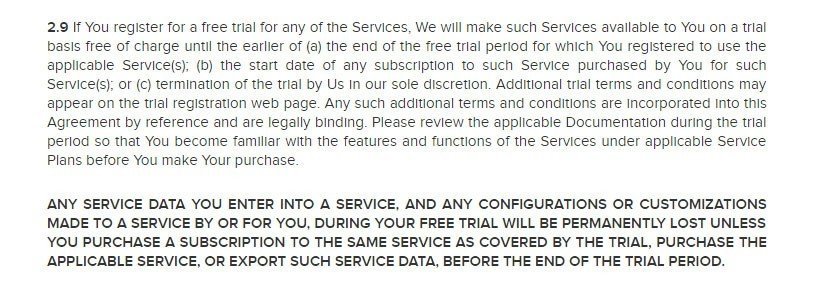
This incorporation of free trial terms into the main Terms and Conditions agreement makes it easy for a user to understand that standard terms that apply to paid subscribers also apply to non-paying users during the free trial.

At Unbounce, all of the free trial terms are embedded within one main Terms of Service agreement.
Payment information for how users will be billed after a free trial is included in a "Fees and Renewals" section. Users are informed that after a 30-day free trial, charges may be incurred or billed as subscription fees.

Information about the "Trial Program" can be found in its own clause so that users will understand how future trials of programs will work. After trying a program for free, a user can either choose to buy the program or not buy it and not be charged.

If you offer a free trial, include the following information either within your main Terms and Conditions or within a separate Free Trial Terms and Conditions that references your main Terms and Conditions.
- How long a free trial period lasts,
- What happens when the free trial ends,
- How a user can cancel the free trial before it ends,
- A reference to your full Terms and Conditions, and
- Anything else that's important for a user to know about the free trial

Comprehensive compliance starts with a Privacy Policy.
Comply with the law with our agreements, policies, and consent banners. Everything is included.
